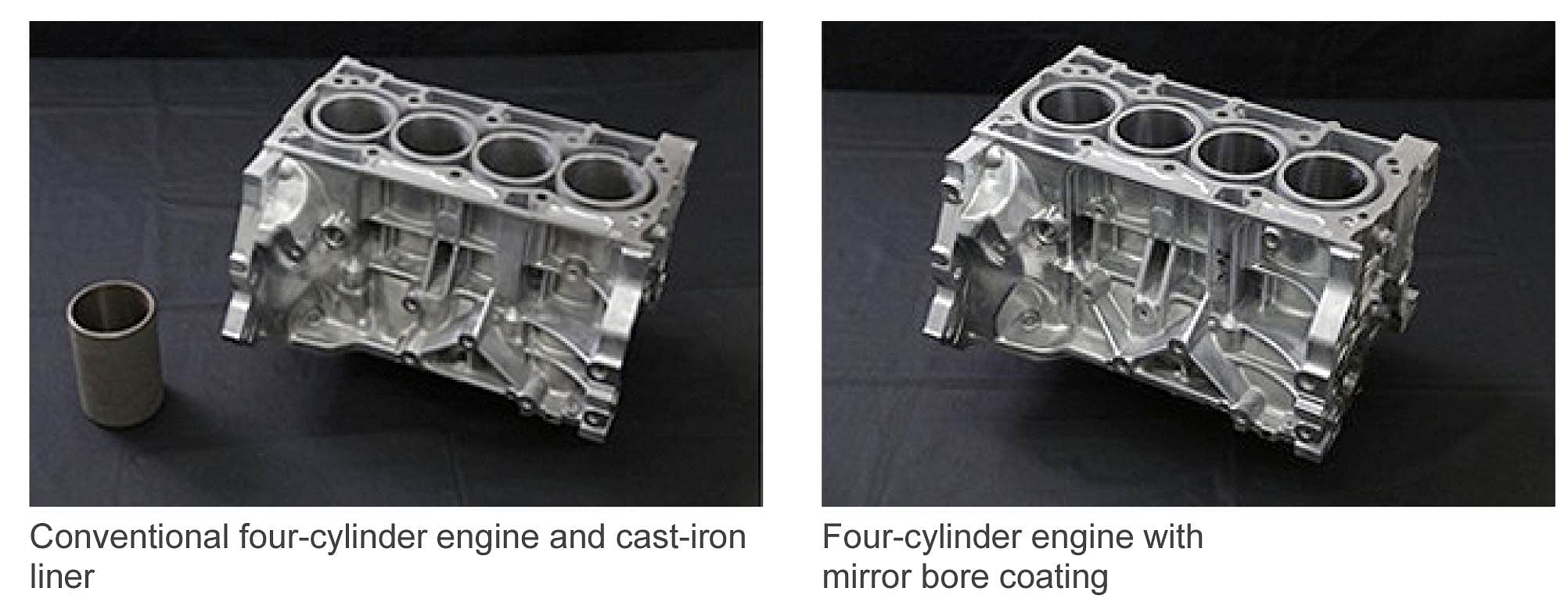Nissan licenses energy-efficient engine technology to Germany’s Heller
NMRP spray-coated cylinder bore technology to help carmakers mass-produce highly efficient engines.
Nissan Motor Co has licensed its Nissan Machining Roughening Process (NMRP), a proprietary technology used in making automotive engines, to German machine tool manufacturer Gebr. Heller Maschinenfabrik.
By using Heller machinery that incorporates NMRP, carmakers worldwide will be able to mass-produce engines with highly energy-efficient cylinder bores with iron spray coating at a consistent quality level.
“Rather than limiting the use of our own technologies like NMRP within the company, Nissan is contributing to the technological advancement of the industry by making them widely available,” said Catherine Perez, corporate vice-president of corporate strategy, partnerships and business development at Nissan. “Nissan will also advance its research and development by investing the profit gained from licensing assets like NMRP. We expect the licensing of NMRP to Heller will result in improved quality of products and services as well as customer satisfaction in the automotive industry as a whole.”
A 2.6mm cast-iron liner is conventionally inserted into an engine’s cylinder bore, a tube-shaped space inside which the piston moves up and down, to protect it from heat and friction. To reduce engine weight and improve fuel efficiency, automakers have begun replacing cast-iron liners with 0.2 mm-thick iron spray coating – or molten, low-carbon steel, sprayed onto the inner surface – primarily in high-performance and ultralow-emission cars. Also known as ‘mirror bore coating’ for its mirror-like finish, iron spray coating helps manufacturers reduce engine weight and facilitate cooling, significantly boosting energy efficiency without affecting the driving experience.

Engines using iron spray coating, however, are known to be difficult to mass-produce with consistent quality, limiting the technology’s application to a small number of high-end engines. Mass production requires advanced thermal spraying technology as well as technology that ensures the coating stays bonded on the inner surface of the cylinder despite constant explosion and compression.
NMRP is a type of hole-boring process that uses optimized tools and processing conditions to roughen the inner surface of a cylinder bore so that the iron spray coating stays tightly bonded. By combining appropriate thermal spraying technology and NMRP, manufacturers can mass-produce engines with iron spray coating at a consistent quality level, at a relatively affordable price.
Nissan first applied iron spray coating to the VR38DET engine of the Nissan GT-R, and then to low-emission engines for minivans and compact cars – including the Nissan Juke 16GT’s MR16DDT; VR30DDTT for Infiniti Q50 and Q60; VQ35DD for Pathfinder and Infiniti QX60; HR12DDR; and MR20DD, without limiting its use for high-performance engines.
Heller has been producing and selling machining modules for cylinder bore coating. Nissan’s NMRP license enables Heller to offer a combination of technologies for carmakers to mass-produce engines with iron spray coating.
RELATED ARTICLES
Horse Powertrain reveals hybrid conversion for electric cars
Engine-making joint venture of Geely and the Renault Group announces new hybrid powertrain that fits into the same space...
Aisin to produce hybrid motor for Mitsubishi in Thailand
The hybrid drive motor and gearbox, will be produced at Aisin Powertrain (Thailand) Co for use in the Mitsubishi XForce ...
GM reports strong Q1 sales in China, demand for EVs and hybrids surges 53%
General Motors and its joint ventures in China have sold more than 442,000 units between January and March 2025.






 By Autocar Professional Bureau
By Autocar Professional Bureau
 14 Sep 2017
14 Sep 2017
 7379 Views
7379 Views









